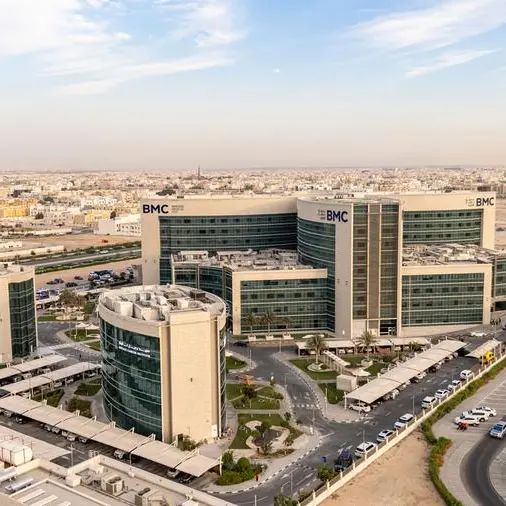PHOTO
The Saudi Arabian economy is set to see minimal growth of around 0.5% in 2019, below the average of 2.2% last year, according to ICAEW’s latest Economic Update report. Despite major diversification efforts, economic activity in the Kingdom remains weighed down by the renewed oil production cuts by OPEC+. However, the accountancy and finance body says private-sector job creation is crucial to Saudi Arabia achieving long term fiscal sustainability.
Economic Update: Middle East Q3 2019, produced in partnership by ICAEW and Oxford Economics, says the Saudi economy continues to tread slowly towards economic diversification and improving the overall business environment. The non-oil private sector expanded by 2.3% in Q1 2019 – the fastest in six quarters – and in June the Purchasing Managers Index (PMI) reached its highest level since December 2017. However, despite major diversification efforts, the Saudi economy remains closely linked to oil-sector developments.
Preliminary estimates show that the economy grew by 1.7% in Q1 2019, buoyed by an uptick in both oil and non-oil activities compared to the same period last year. Nonetheless, solid economic growth and rising output are yet to translate into higher hiring activity in the private sector. The report states that the employment sub-index of the PMI survey has remained close to the neutral level of 50 for over two years, partially due to squeezed profit margins, as firms grapple with rising input costs and discounted selling prices amid strong competition.
The private sector has long relied on expat workers, making up about 80% of the total private sector labour force in 2018. As the government pushes Saudization policies to tackle the high levels of unemployment among locals, the number of expats in the private sector has significantly declined, with over 1.2m expats leaving the labour market since the end of 2016. More worryingly, the number of employed Saudis has not picked up, and has, in fact, declined on an annual basis for two consecutive quarters in Q4 2018 and Q1 2019, by 1.7% and 1.2% respectively.
The oil sector is expected to contract by 1.8% in 2019, well below the growth rate of 2.9% recorded in 2018 – weakening its contribution to the economy. According to the Q3 Economic Update report, oil production in Saudi averaged 10.09m b/d in Q1 and 9.78 b/d in Q2 2019, notably below the average of 10.3m b/d in 2018. With the extension of the OPEC+ supply cuts well into Q1 2020, oil production is unlikely to recover in the second half of the year. Saudi Arabia is actively working to support oil prices amid growing fears of worsening global demand conditions, reflecting the escalating US-China trade war and the potential of a US recession by next year. The oil sector will be further weighed down by lower oil prices this year, averaging US$65.5pb, about 7.8% below the average of the US$71.1pb last year.
Michael Armstrong, FCA and ICAEW Regional Director for the Middle East, Africa and South Asia (MEASA), said: “We applaud the necessary reforms the Saudi government has implemented to achieve economic diversification and to improve the overall business environment. Although we see signs of improvement in the non-oil private sector, the Saudi economy still remains closely tied to the dominant oil sector. In order to achieve Vision 2030 goals, improvement of the overall business environment through pro-business policies and initiatives is a must, especially addressing the high unemployment level in the private sector as this is a key area of growth for Saudi Arabia.”
On a positive note, the Saudi government posted a US$7.4bn budget surplus in Q1 this year, the first in almost five years. Also, the US$53bn private sector stimulus originally marked for 2018 – 2021 is expected to extend beyond 2021, reaffirming the government’s commitment to Vision 2030 and economic diversification. The stimulus plan includes funds allocated for export promotion, support of SMEs and investment in technology. Government spending is expected to reach US$9.6bn this year, and US$5.9bn in 2020.
Construction activity in the Kingdom has also shown signs of recovery, expanding by 1.3% in Q1 2019, after contracting by around 3% a year from 2016 – 2018.
Middle East economic growth to decelerate further in 2019
The outlook for the Middle East economies remains clouded by tough US sanctions, maximum pressure policies against Iran and steep oil production cuts. In 2019, the Middle East economies will slow to a more-than-a-decade-long low, growing by only 0.1%, down from an estimated 1.4% in 2018. Aggregate oil production in the GCC, Iran and Iraq dropped from 24.8m barrels per day (b/d) in the first half of 2018 to 23.9m b/d over the same period in 2019, representing a 3.6% contraction.
Mohamed Bardastani, ICAEW Economic Advisor and Senior Economist for Middle East at Oxford Economics, said: “Continued uncertainty in the global oil market paired with geopolitical tensions, involving Iran especially, has meant that in 2019 the Middle East economy is experiencing its lowest growth in over a decade. The slowdown, largely driven by the impact of two of the largest economies in the region – Saudi Arabia and Iran, will hopefully be softened by the improvement of the non-oil private sectors across the region.”
Elsewhere in the region, Iraq’s economy is expected to accelerate to 2.7% this year, up from a contraction of 1% in 2018, against a backdrop of improving security conditions and rising oil production. Bahrain’s economic growth will slow marginally to 1.6% in 2019 as the government continues to implement sizeable fiscal consolidation measures, while relative improvements in exports, tourism and remittances will push growth in Jordan and Lebanon to 2.3% and 0.8% respectively.
-Ends-
Media enquiries:
Pedro Wisden, Mojo PR, on +971 (0)52 527 4062 or email pedro@mojo-me.com
About ICAEW
There are over 1.8m chartered accountants and students around the world – talented, ethical and committed professionals who use their expertise to ensure we have a successful and sustainable future.
Over 181,500 of these are ICAEW Chartered Accountants and students. We train, develop and support each one of them so that they have the knowledge and values to help build local and global economies that are sustainable, accountable and fair.
We’ve been at the heart of the accountancy profession since we were founded in 1880 to ensure trust in business. We share our knowledge and insight with governments, regulators and business leaders worldwide as we believe accountancy is a force for positive economic change across the world
www.charteredaccountantsworldwide.com
www.globalaccountingalliance.com
About Oxford Economics
Oxford Economics is one of the world’s foremost advisory firms, providing analysis on 200 countries, 100 industries and 3,000 cities. Their analytical tools provide an unparalleled ability to forecast economic trends and their economic, social and business impact. Headquartered in Oxford, England, with regional centres in London, New York, and Singapore and offices around the world, they employ one of the world’s largest teams of macroeconomists and thought leadership specialists.
Disclaimer: The contents of this press release was provided from an external third party provider. This website is not responsible for, and does not control, such external content. This content is provided on an “as is” and “as available” basis and has not been edited in any way. Neither this website nor our affiliates guarantee the accuracy of or endorse the views or opinions expressed in this press release.
The press release is provided for informational purposes only. The content does not provide tax, legal or investment advice or opinion regarding the suitability, value or profitability of any particular security, portfolio or investment strategy. Neither this website nor our affiliates shall be liable for any errors or inaccuracies in the content, or for any actions taken by you in reliance thereon. You expressly agree that your use of the information within this article is at your sole risk.
To the fullest extent permitted by applicable law, this website, its parent company, its subsidiaries, its affiliates and the respective shareholders, directors, officers, employees, agents, advertisers, content providers and licensors will not be liable (jointly or severally) to you for any direct, indirect, consequential, special, incidental, punitive or exemplary damages, including without limitation, lost profits, lost savings and lost revenues, whether in negligence, tort, contract or any other theory of liability, even if the parties have been advised of the possibility or could have foreseen any such damages.




















